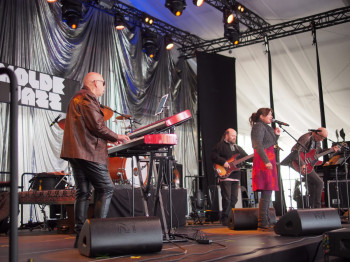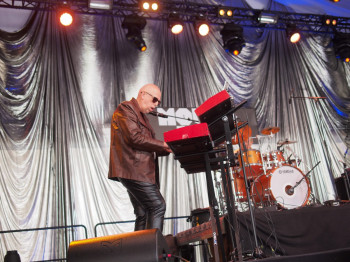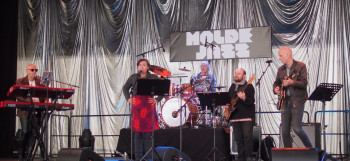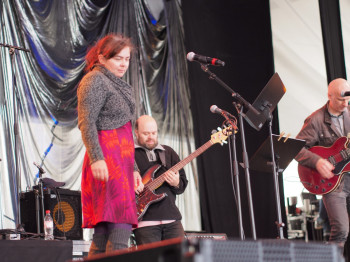Gikk du glipp av Maria Schneiders åpningstale? Vi var så heldige å få den oversendt til redaksjonen, og overbringer herved det som vi kalte en “bannbulle mot strømmetjenestene”, i tekstlig form.
I think each of us could look back in time and pinpoint specific events in our individual lives that somehow later emerge as impactful.
An early memory for me came at age 6 on my first day of school when little girl sat to my right that I’d never seen before. She was cute, quiet, with short dark hair. Our teacher, Mrs. Larsen (a good Norwegian name, as nearly everyone in my tiny town of Windom, MN was either Norwegian or Swedish) –– anyway, Mrs. Larsen introduced the little girl as Sirin Olsen, explaining that her family would live in Windom for much of the year, as they were starting a foreign exchange program between Windom & Sirin’s hometown, Sortland, Norway. Sirin passed me a little note right away that started with the words, Hvordan har du det? I immediately loved her –– she was exotic, spoke a different language, was sweet as could be, and could jump-rope like I’d never seen. I loved that she reached out to me, without knowing me, and seemed to be asking me to be her friend. We are in touch to this day and she is now a doctor.
That relationship opened my eyes to a wider world that I wanted to explore. And my eventual career in jazz has fortuitously brought me to many countries, enjoying wonderful collaborations, and revealing music’s extraordinary power. I have three stories illustrating how jazz alone can have the power to bridge impossible divides.
The first story came when a musician from my group in New York, Scott Robinson, told me of an old man in Japan that invited Scott into his home to see his old Victrola. He told Scott how during World War II, he kept that Victrola in hidden in his basement, because listening to Louis Armstrong was how he survived.
The next story happened 20 years ago when the United States was bombing Belgrade. I was in communication with a young Serbian jazz journalist I’d met at the North Sea Jazz Festival. He’d write me, describing the sound, fear, and destruction from American bombs, but then he’d also write about jazz, telling me of American musicians he loved and wanted to interview. I couldn’t believe jazz could bridge that divide.
And just 10 years ago, working in Prague, three older Czech jazz musicians took me around their great city, telling me of the struggle of living under communism, and how they would try to catch jazz on the radio waves via a program called The Voice of America. They each described how jazz gave them hope.
I dare say music is the most underutilized resource for peace, progress, child development and diplomacy in the world. We know of the thousands of kids in Venezuela that have been saved through the extraordinary classical music program called, El Sistema, or how the Divan Orchestra, made up of young Israeli and Palestinian musicians has inspired a world. But despite everything we know about the deep transformative value of music, our world more and more devalues music. Many genres of music like jazz and classical, in the face of the digital marketplace, actually stand in jeopardy. And also standing in jeopardy is the power for good that music brings to the world.
Big data companies like Google top the list of evil forces that are destroying our culture. They put their own profit ahead of you, ahead of any economy, country, child, ahead our collective peace, or any democracy, ahead of our safety, mental health, and certainly ahead of art and culture. Musicians learned long ago, that in Google’s eyes, musicians exist purely to help them attract eyeballs and gather data. Google became the most powerful company in the world on the backs of musicians, artists, writers, journalists, photographers, film-makers – and on the back of each of you, as they gain power and wealth by invading your privacy. In a very cunning way, they trained a world to expect “free.” But “free” isn’t “free.” What Google has sold as “free,” actually comes at the highest possible cost, because we’ve traded the conveniences that they offer for our own privacy and our own autonomy as individuals.
When the most powerful information channel in the world, Google, has as their only moral compass, the corporate motto, “Don’t Be Evil,” they’ve set the bar as low as it can possibly go. They are actually the epitome of evil. They assert power over government leaders worldwide who depend upon those search capabilities and information channels to be elected and for almost everything there is. Just one week ago, they undermined the EU’s initiative, Article 13 which would have helped musicians protect their creative work against theft on YouTube and all over the internet. In the last days before the vote, Google spent 13 million dollars to lobby EU’s Parliament with false claims, and with fake public resistance. In the end, predictably, Google won. It was devastating for creators all over the world. But on the other hand, recently the EU passed something called GDPR (General Data Protection Regulations), and Norway is part of that. It strengthens individuals’ rights in regard to their data. The EU seems to be waking up. It’s a step in the right direction that will hopefully be an example to the U.S. to reign in their own monopolistic big data companies.
So let’s talk about another data lord, Spotify. This is a company that enticed the three biggest music companies, Sony, Warner and Universal into giving over all their contracted artists’ music in exchange for equity. By giving over 80% world’s music to a company that trades music for ads, Spotify got total market share, and our own music industry accepted that trading music for ads is fair.
Here are some Spotify facts. 99% of all streaming on Spotify comes from only 10% of all songs. That means 90% of the music on Spotify, is splitting 1% of the pie. Again, 90% of the music on Spotify, splits just 1% of the financial pie. Who’s all splitting the 1%? Virtually all jazz, blues, classical, folk, world-music, Latin, emerging artists, experimental risk-takers, most pop, even a lot of hip hop, lots of rock, most country, probably everyone who has ever played the Molde Jazz Festival, likely everyone who performs in Oslo’s fabulous Opera House. It includes all of us outside of the most mainstream music –– we are all expected to finance our collective recordings on 1% of pie. It’s a colossal fraudulent joke.
What makes things even scarier, is most musicians I know are themselves paying to record their own music, risking tens of thousands, even 6-figure budgets, out of their own savings or on a bank loan, with zero chance of recovering the investment. And speaking of “pie,” you’re lucky if you make enough money to buy one piece of pie with what you’ll make, and I’m not kidding. I mean that literally.
As an example, young hip hop artist I know co-wrote a song with one other person that hit it big. They got 75 million plays on Spotify, and each never got a check for more than $60. So, if even quite successful songwriters are barely paid, and your odds of winning the lottery are far better than paying off a record – and there’s no other method to get your music to the world other than streaming because CDs are all but extinct, and Apple downloads too, and now nearly everyone in the world simply streams on Spotify and YouTube –– then what do you think will happen to the music YOU love?
But folks, things get even worse: Because streaming companies own ALL of the data, they know who listens to what, and exactly how much they listen. With that data, they can predict the successful artists and songs. So, they are now themselves producing music based on that knowledge. Frighteningly, studies show if people are told what other people like, even if not true, it will make others like that music too. So Spotify can steer people to the music that financially benefits them, and music they themselves create, and they are doing it. With all this power, companies like Spotify and YouTube will be able to control the whole show. One well-known New York songwriter said to me, “Maria, it’s not that songwriters can’t write good songs anymore, but we’re being told exactly what to write based on what the companies see through their data.”
It stands to reason, that if the world starves those who create music, it won’t be long before new meaningful music disappears.
If we allow these companies to manipulate our taste for their own profit –– if we willingly digest what they feed us, we’re allowing them to destroy the very pillars of great music. And if young, potentially highly creative musicians, see no future hope of even a modest living from music, the world will eventually stop producing artists like David Bowie, Prince, Jimmie Hendrix, iconic artists who bucked every “trend,” and jolted the world with the unexpected, and changed the evolution of music.
Spotify and YouTube love to use the lofty word “curation” when they suggest what you might like, as if they are the artistic “curators” of Norway’s National Gallery or something. Make no mistake, when Spotify and YouTube use the word “curation,” it’s a substitute word for “mind control.” Their brand of “curation” is quickly dragging our music culture into a swirling cesspool of mediocrity.
The future of great music lies in an HONEST relationship between artists and their fans, not the cheapest direct route to profit. YOU, who have come here, are the great fans that drive great art. You’ve carved out time to enjoy this extraordinary and historic festival – the 2nd oldest in the world! A festival that’s taken great care to give you a broad musical perspective. A festival famous for spotting talent: like Wayne Shorter and Keith Jarrett with Charles Lloyd, years before they made their mark as solo artists, Esperanza Spalding back in 2007, Kendrick Lamar already in 2013. Molde, that even commissions fresh new work, has earned the right to call themselves “curators” of music, not Spotify and YouTube. Molde represents every great thing in the world that money-hungry big data companies are destroying. In bleak times, Molde continues to show us how art enhances life, and how great audiences enhance art.
I’m thrilled and honored to be here. This is the first festival that has ever invited me show all that I do, not drawing lines between genres. I’m thrilled to be here with the fabulous musicians in Ensemble Denada, they are among the greatest I’ve worked with in the world –– and to have the great Donny McCaslin, Jeff Taylor and Nate Wood join us on my Bowie collaboration which will be performed live for the first time. And, I can’t wait to work with soprano great, Eir Inderhaug and Trondheimsolistene.
I’m excited to immerse myself in the great music at the Molde Festival, as I know you are, too. In light of all that I’ve talked about, here is my dream for this festival: that we all really unplug – turn off our phones and devices, leave them at home or in your hotel, toss them in the fjord, or at least, lose them deep in your bags, completely turned off. Then when there’s a moment of space that you’d ordinarily fill by looking at your text messages or seeing if someone called, instead just breathe in the air, look at this magical place, and open yourself to the space. Do you remember when we all daydreamed? When life sometimes gave us so much space where we might even find ourselves bored? Boredom precedes daydreaming, and that feeds our imaginations and ideas! So in any space you find, let your minds go –– take in the people, take in the music, explore your own fresh ideas!
The next thing I’m going to ask might feel uncomfortable, but I’m going to do it, and I’d like to ask that we each try: That is, this week, to spontaneously introduce yourself to people you don’t know. Ask what brought them here – what music they’re most excited to hear – get to know each other. Reach out just like Sirin Olsen reached out to me in 1966 when without knowing me, she wrote the words, “Hvordan har do det.” I guarantee that if you do that with four people, you’ll have at least one extraordinary encounter where you really have something in common, or you’ll just really have fun talking. Hey, someone here could fall in love! We are living in an extraordinary world, but increasingly we don’t even notice one another. And when we encounter people we don’t know, or face silence and space, we retreat into our private digital world. But it’s not “private,” and it’s not “yours.” It’s a world that thrives on exploiting you.
This festival isn’t here to exploit you. No musician is here to exploit you. We want to give ourselves to you, completely. So in these next days, let’s embrace life together, knowing how special, and rare is it is to all meet amongst each other in such an extraordinary place, amidst so much wonderful music –– all of it is here, purely for enhancing life! This is a place to experience, with each other, the joy of being alive! Welcome to the Molde festival! Let the wonderment of being human and alive in the physical world begin!!!

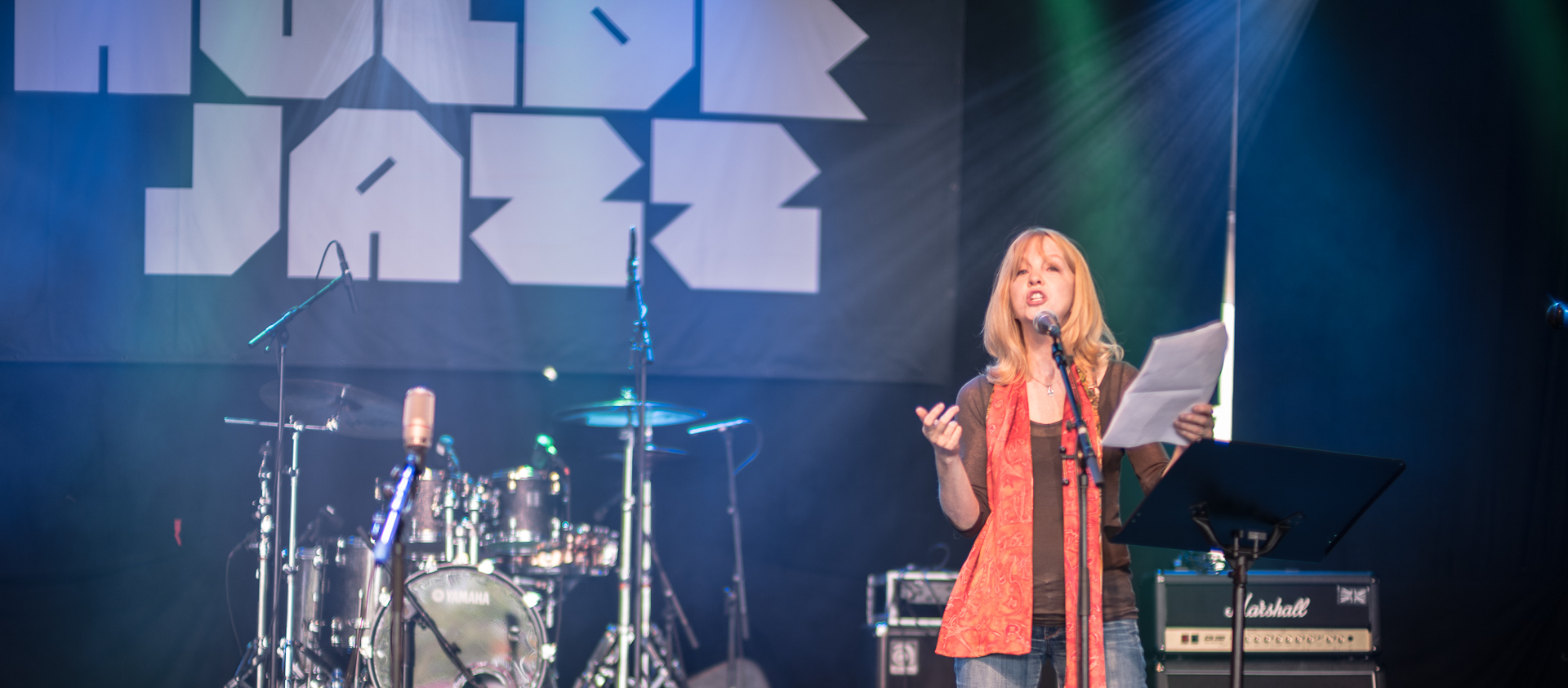


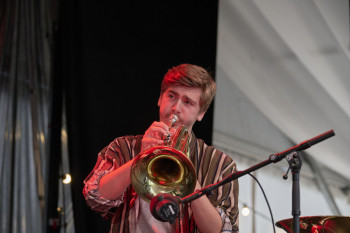
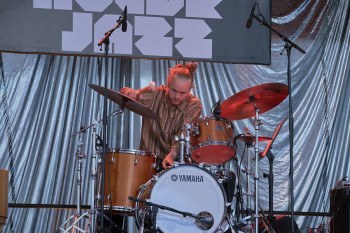
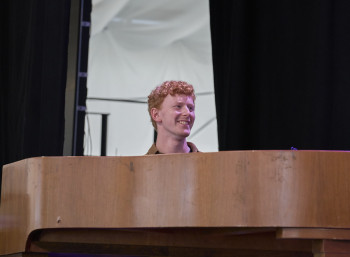
.jpg)
.jpg)
.jpg)
.jpg)
.jpg)
.jpg)
.png)
.png)
.jpg)
